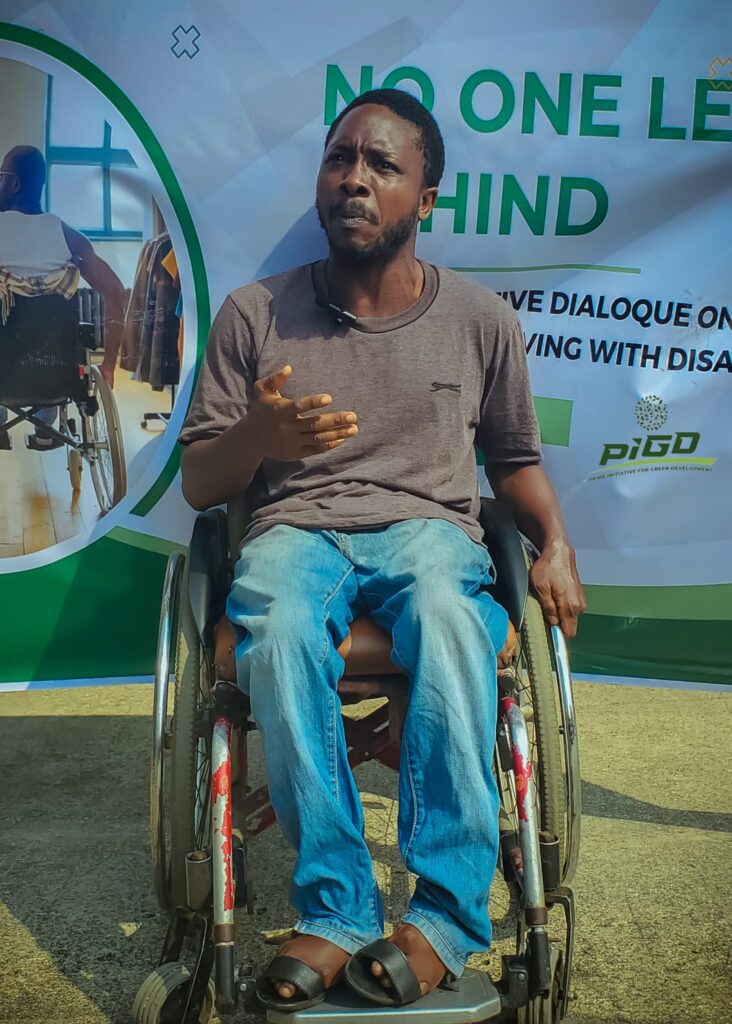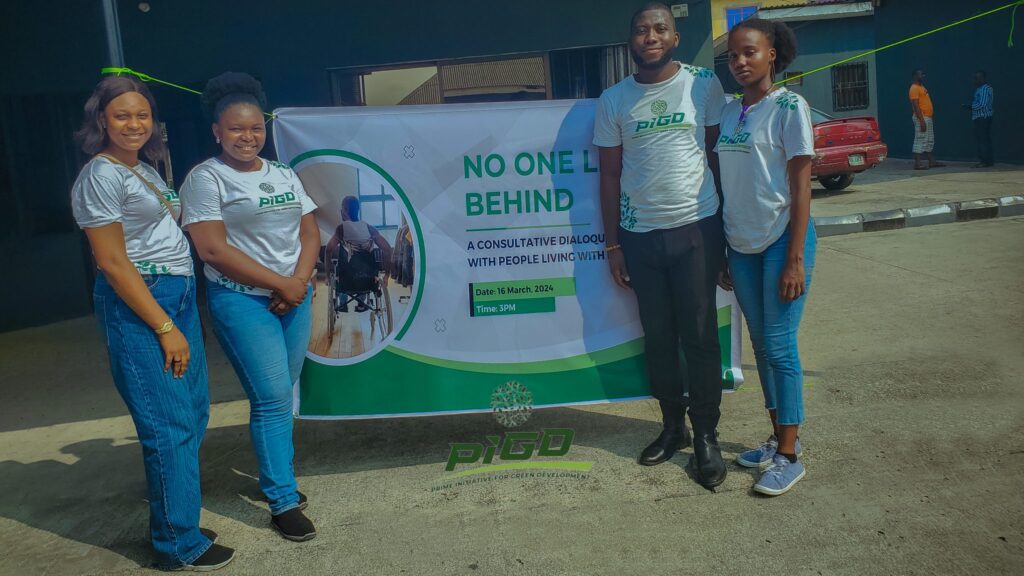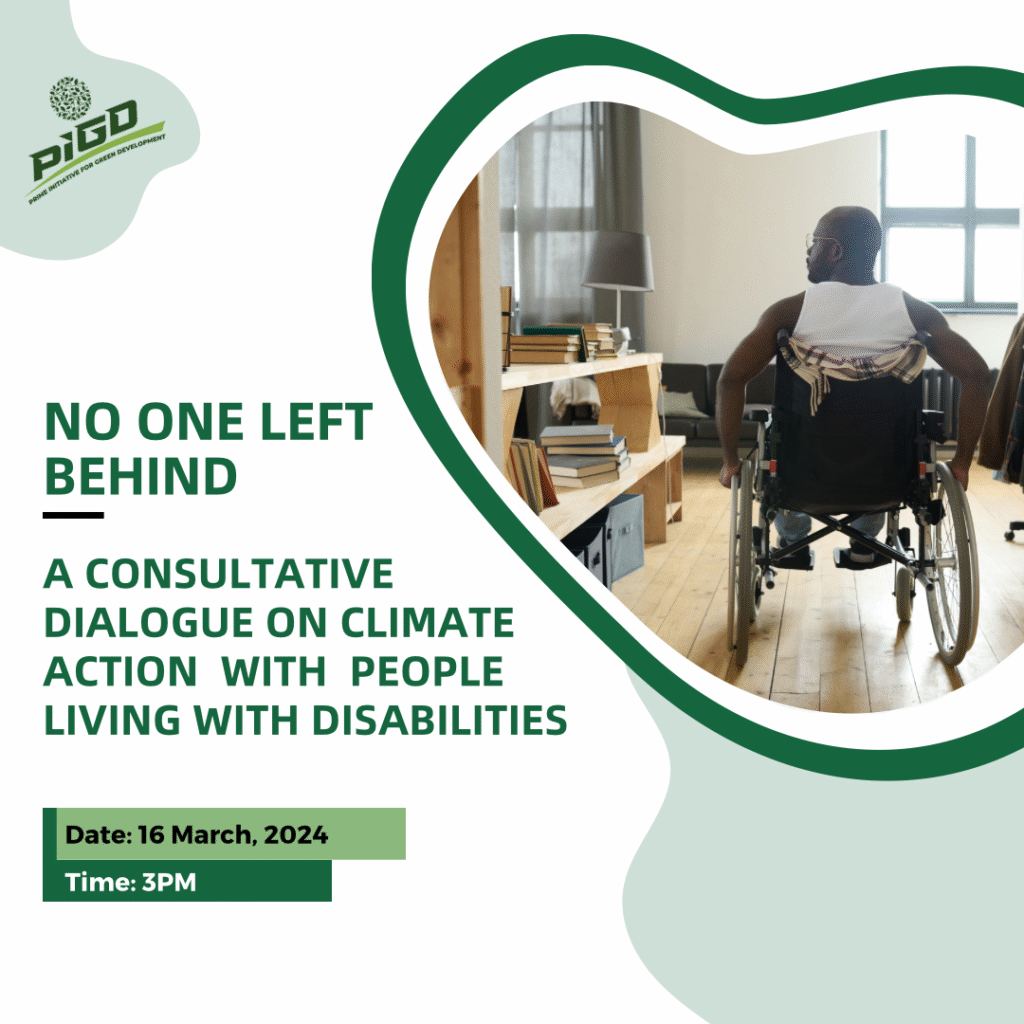
No One Left Behind: A Consultative Dialogue on Climate Action with People Living with Disabilities
Persons living with disabilities (PLWD) are among the most vulnerable to climate change impacts in the world today. From increasing temperatures to extreme heat, heavy rainfall events, and rising sea levels all over the world, there’s a rising need to ascertain the level of climate change loss and damage impact on vulnerable communities and marginalized people in society and effectively address these issues with adequate intervention strategies.
In the event of natural disasters and climate emergencies, people living with disabilities suffer terrible health conditions that make them more susceptible to infectious diseases, especially with the scarcity of clean water and proper sanitation. The ability of people living with disabilities to move around freely and independently access essential facilities is most times very limited. People with disabilities are usually disproportionately affected by climate change as their wide range of impairments, both physical and cognitive, increase their vulnerability and capacity to respond effectively. It’s crucial to consider the specific needs of disabled people in the ongoing drive for environmental justice and climate change as they should be given priority when planning for and responding to climate emergencies.
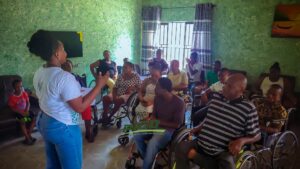
In December 1948, the Universal Declaration of Human Rights was drafted and proclaimed by the United Nations General Assembly, applicable to every human being in every Nation. In a world of inhumanity, tyranny, oppression, and discrimination, these rights were set up as a framework for the protection of the fundamental human rights of people all across the globe.
Furthermore, in 2018, Nigeria enacted the National Discrimination Against Persons with Disabilities Prohibition Act to protect the rights of Nigerians living with disabilities. The Act prohibits all forms of discrimination against persons with disability and addresses their rights and privileges as citizens of the Federal Republic of Nigeria.
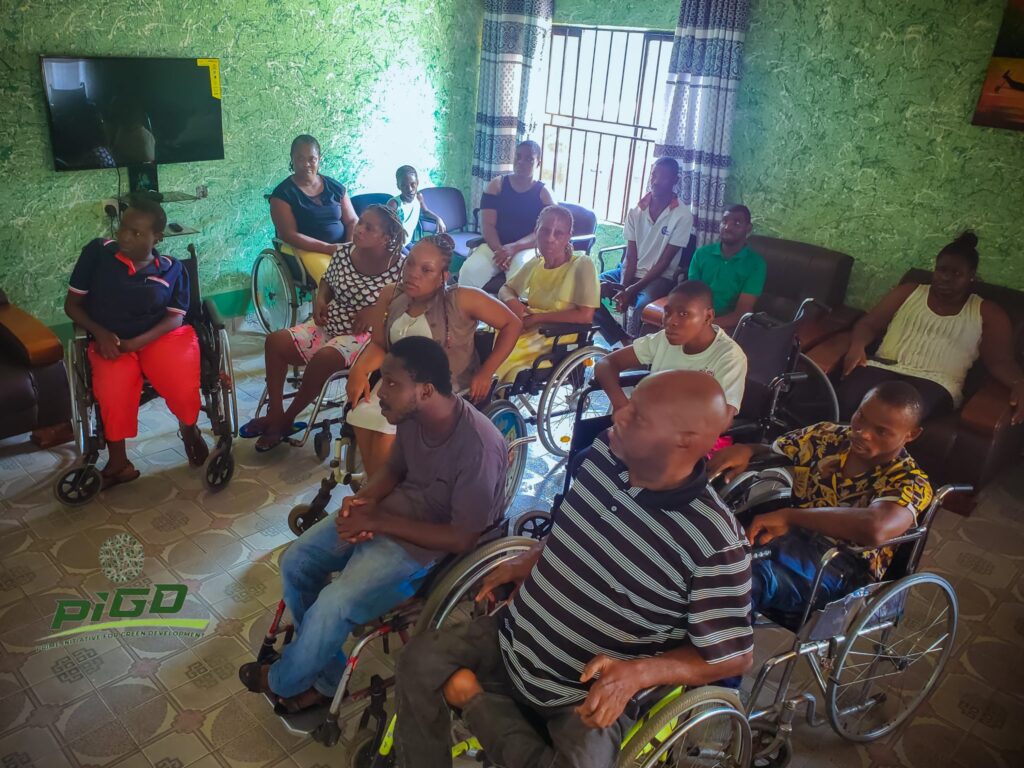
In light of this, a key consideration remains, what is the effectiveness of these legal frameworks and interventions in safeguarding the rights of persons with disabilities (PWDs) in Nigeria, particularly those facing compounded vulnerabilities due to severe environmental impacts and livelihood loss?
On March 16, 2024, Prime Initiative For Green Development took a special consultative meeting to representatives of the People With Disabilities community in Rivers State, Nigeria. This program was titled “No One Left Behind: A Consultative Dialogue On Climate Action With People Living With Disabilities”.
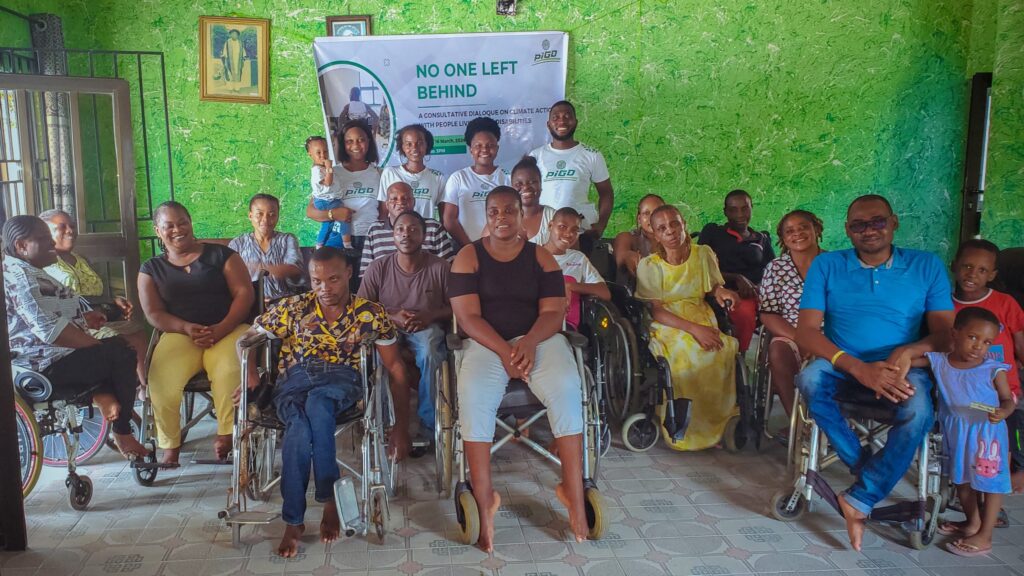
The interactive dialogue sessions between staff of Prime Initiative For Green Development and about 39 representatives of persons living with disabilities (PLWDs) were discussions centered on ascertaining the level of policy compliance and the critical urgency of climate action in the Nation, particularly emphasizing the detrimental impacts of climate change and environmental degradation on the PLWD community. These dialogues aimed to identify and characterize the specific challenges faced by the PLWD community within the country. Issues raised bothered the absence of natural disaster emergency response measures to protect PLWD in previous climate emergencies like floods, leading to the loss of thousands of lives in the past years. They also bemoaned the loss of livelihood sustenance for PLWD owing to environmental degradation.
The lack of accurate data for persons with disabilities was also highlighted as a major problem and limitation in efficiently addressing their concerns.
The dialogue identified several key recommendations to ensure the inclusion of Persons with Disabilities (PWDs).
Individuals with disabilities have the fundamental human right to a healthy and ecologically safe environment. Their unique perspectives and experiences are crucial for the development and implementation of effective environmental conservation and protection strategies. The onus lies on both societies and governments to address the challenges that currently limit the full inclusion of persons with disabilities in decision making processes through more intervention initiatives such as capacity building workshops, targeted outreach programs, and policy frameworks that guarantee equal access to information, decision-making processes, and environmental justice. Ensuring inclusion is non-negotiable in building a more sustainable future for all.
